When you see the word “compostable” on a product label, do you imagine tossing it in your backyard compost pile and calling it a day? It was easy to read the packaging for Kauai coffee pods meant for use in Keurig single-serving brewers that way, but they could only be composted in a few industrial facilities. Now an ad watchdog has recommended that the company make this distinction clearer to customers. [More]
eco friendly
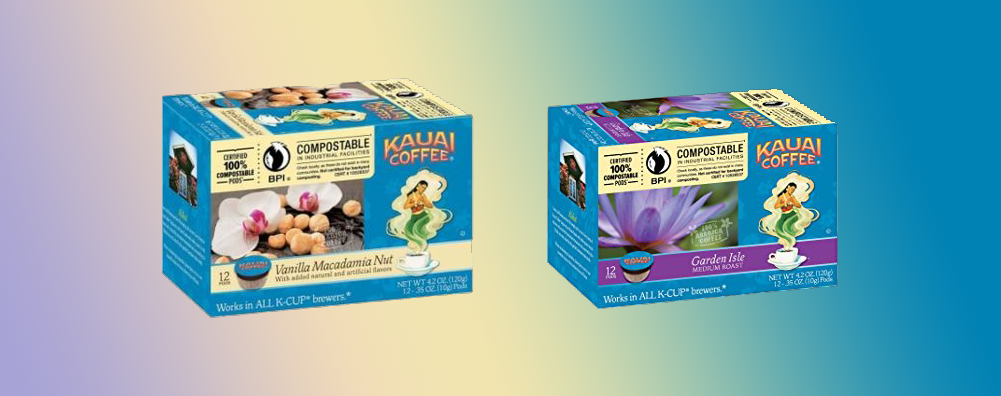
Ad Watchdog: These ‘100% Compostable’ Coffee Pods Don’t Go In Your Backyard Compost Pile
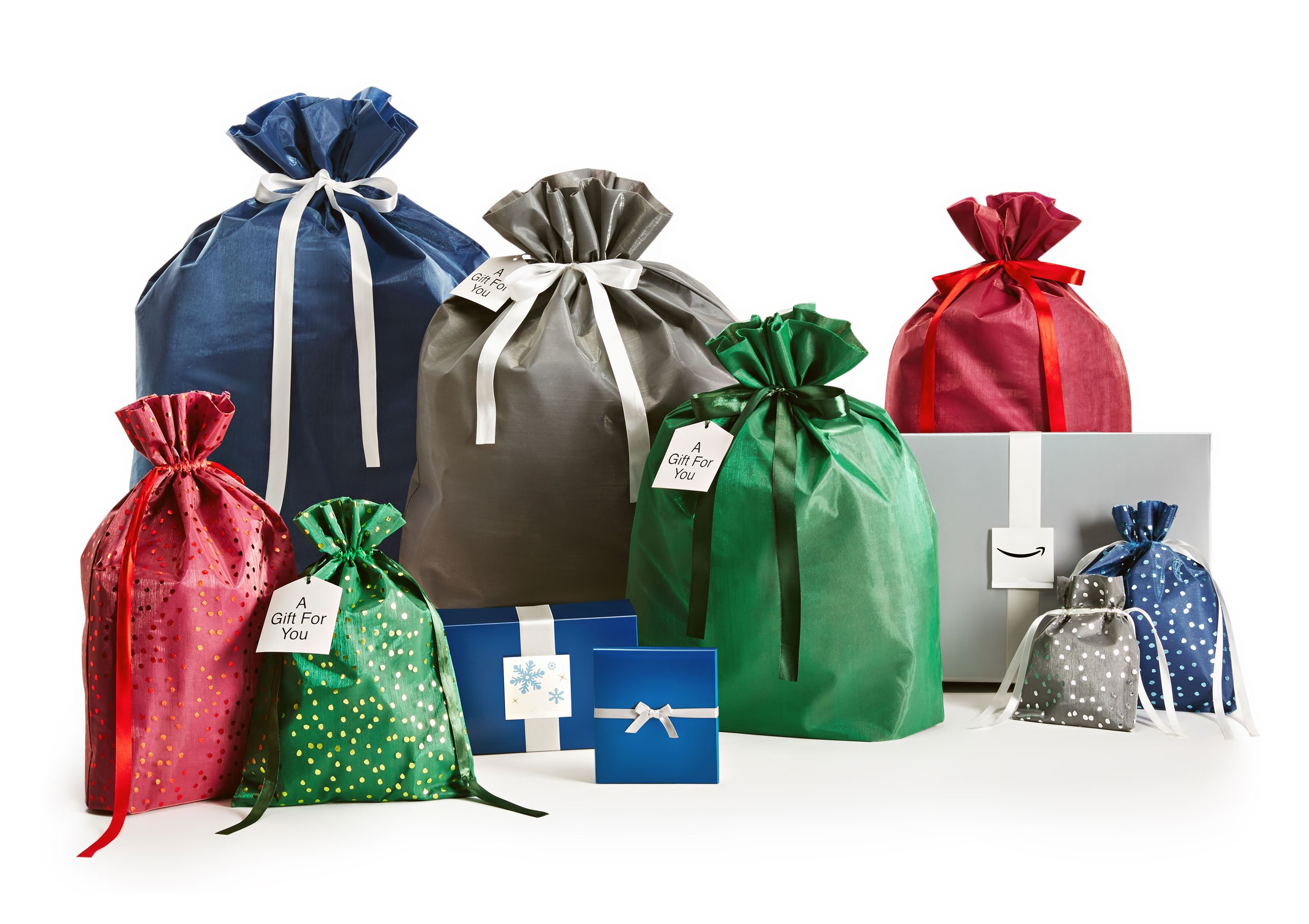
Amazon Switching Out Wrapping Paper For Reusable Cloth Bags
When you hear that your online purchase will be “gift wrapped,” what do you picture? Most people would picture a package wrapped up in paper, maybe with a bow, right? That’s not what Amazon customers are getting in their boxes this holiday season: for the same price, shoppers are getting velvet gift bags of various sizes. [More]

Tesla Unveils Vegan-Friendly Car With Synthetic Leather Seats
Watch ads for luxury cars and you’ll inevitably hear about their “sumptuous” leather seats and interior trimmings. But what if you have gobs of money to spend on a car and don’t want it lined with leather (or boring old cloth)? That’s why Tesla now offers a new, vegan-friendly option for its pricey electric vehicles.
[More]
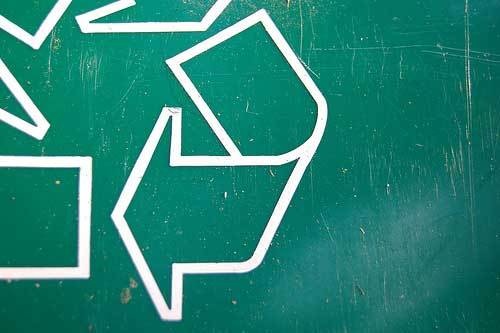
How Can I Tell When A Product Is Being Greenwashed?
Sure, some people want to buy environmentally friendly products, and that’s great. The problem is that marketers understand these impulses well, and want to take advantage of them without always offering products that live up to the claims. What to do? ShopSmart has some answers.
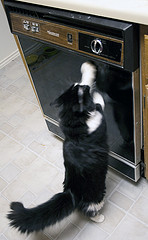
Eco-Friendly Dish Detergents: Do They Clean The Earth And Your Plates?
What’s with these purported “green” cleaning chemicals? I’ve been known to mutter “it’s all a bunch of tree-hugging hippie crap” while I coat every surface in my house with the strongest, cheapest chemicals I can find. I’m fond of bleach. But other people have consciences or something, and it’s for them that Consumer Reports evaluated eco-friendly dishwasher detergents.
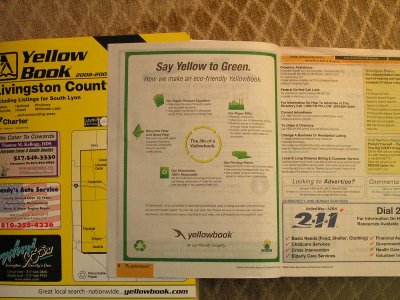
Yellow Book Saves The Earth By Distributing Thousands Of Phone Books With Smaller Print
I don’t use phone books, but I get three different ones delivered to my house every year anyway. Hardly anyone I communicate with even has a landline, let alone a white pages listing, but that doesn’t matter. They still deliver them. Straight into a snowbank.
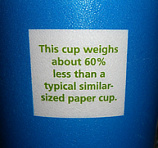
Sam's Club Pretends Its Polystyrene Cup Is Green
Gregg saw this cheerful environmentally-friendly message on the side of his Sam’s Club soda cup. Wait, what? We guess it saves Sam’s Club fuel costs to ship the cups, but that sounds more like a profit-friendly quality. Gregg notes another benefit of the cup: “[it] may never biodegrade but at least it’s easy on my drinkin’ elbow.”
../..//2008/07/01/a-consumer-reports-study-finds/
A Consumer Reports study finds that 79% of consumers surveyed say they plan on buying a car with better fuel economy. [Consumer Reports]

Upgrade Or Repair Your Home With Eco-Friendly Products
Despite all the media attention, buying well-made, affordable products that are also environmentally sound is still a difficult task. Kiplinger’s “Shopping Guide to Eco-Friendly Products” offers several suggestions to help you buy green and get a solid deal on major appliances, lawn care, building supplies, and home maintenance.
../..//2007/10/01/two-thirds-of-cfos-at/
Two-thirds of CFOs at retailers in the U.S. are “actively involved in green practices,” and of those, two-thirds said that they’re doing it to improve or protect the company’s image. Most of the remaining third cited tax breaks or regulatory requirements as motivating factors. [Reuters]
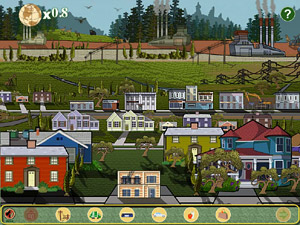
How Many Earths Would It Take To Sustain Your Lifestyle?
“Consumer Consequences” is an online “game” where you enter data about your living, work, travel, energy, and eating patterns, then see how many earths would be needed to sustain your lifestyle if every single person on the planet did the same thing. It’s a relatively fun way to graphically tally up your environmental footprint, and helps you highlight where you use the most resources (and, ideally, where you can therefore cut costs).
../..//2007/09/17/london-councils-is-considering/
London Councils is considering either banning or placing a tax on plastic shopping bags to help curb landfill waste. They say London is “facing a landfill problem because Londoners annually use 1.6 billion bags, which take 400 years to decompose.”
../..//2007/09/10/the-last-time-you/
The last time you bought a mattress, the store probably offered to take your old one away for free. Trouble is, mattresses are hard to dispose of and expensive to recycle. They can’t be compressed easily in landfills, and have to be manually torn apart or put in expensive machines to even partly recycle them. They suggest you look for “green” mattresses online, and take good care of your current one so it will last as long as possible. [Seattle Times]

